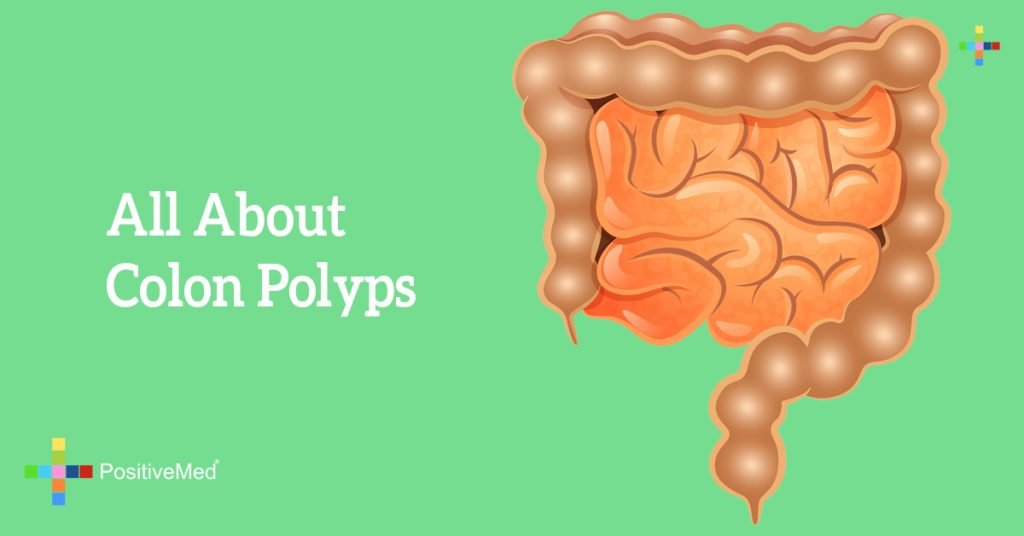
All About Colon Polyps
A colon polyp is a small growth on the inner surface of the large intestine, or colon. They can be raised or flat and you can have more than one, they can also turn into cancer. The cause of colon polyps is unknown but they are more common in adults over 50. Usually polyps are different shapes and sizes. Some polyps are:
- Found raised on stems like mushrooms
- Found on the surface of the colon like mushrooms without stalks
- Found flat on the surface
Polyps can be removed through a colonoscopy, a test used to check for colon polyps. In a colonoscopy the doctor checks your colon and removes abnormal polyps that can turn into cancer. The most effective way of preventing colon cancer is to find and remove polyps before they become cancerous.
They can occur in anyone, but some are more prone to get them than others.

People at higher risk include:
- People over 50
- Personal history of polyps
- Family history of polyps
- Family history of colon cancer
- History of uterine or ovarian cancer before the age of 50
- Excessive consumption of fatty foods
- Smoke tobacco
- Excess alcohol use
- Don’t exercise
- Overweight
Usually there are no symptoms of colon polyps. There is the possibility that you have polyps and you can be unaware until your doctor conducts tests including examining your bowel.

Some symptoms include:
- Rectal Bleeding
You may notice bright red blood on the toilet paper after you have a bowel movement. Rectal bleeding can also signify hemorrhoids or minor tears (fissures) in your anus. Discuss any rectal bleeding with your doctor.
- Blood in stool
Blood can appear as red streaks in stool or make it look black. Black stools do not always indicate problems, sometimes iron supplements and anti-diarrheal medications can make your stool black.
- Constipation, diarrhea, or narrowing of the stool
Changes in bowel habits that persist for more than a week may indicate the presence of colon polyps. These conditions can also occur due to other factors. See your doctor if changes persist for more than 7 days.

- Pain or obstruction
Sometimes a large polyp can partially obstruct your bowel which leads to cramps and abdominal pain, nausea, vomiting, and severe constipation. See your doctor with unusual abdominal pain.
Experts usually advise routine colon cancer testing for everybody between the ages of 50-75 and who are at higher risk for colon cancer. Tests for colon cancer include:
- Stool Samples – They are checked for blood and signs of colon cancer
- Colonoscopy – The doctor inserts a viewing tube into your body through the colon to intestines to check for polyps. They can photograph and remove polyps found in your colon.
- Flexible Sigmoidoscopy – This process is much like colonoscopy, the difference lies with the size of the viewing tube, this is shorter in size so that the doctor can look at your colon only.
- Computed tomographic colonography (CTC) – This is a detailed picture captured via x-ray or computer to check for polyps, this is also known as virtual colonoscopy.





